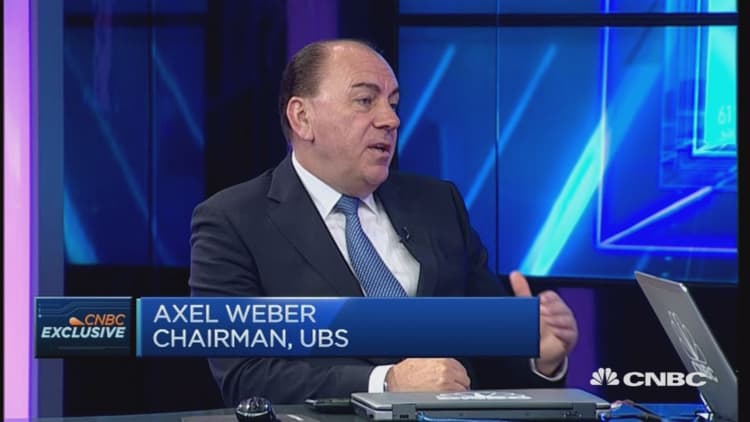
A U.K. vote to leave the European Union could see the FTSE 100 fall by over 10 percent in the next year, according to an analyst at UBS Wealth Management.
Caroline Simmons, deputy head of the U.K. investment office at UBS, said the shares of the U.K. benchmark could vary by over 15 percent in a 12-month period depending on the outcome of the EU referendum, which is being held on June 23.
If the U.K. votes to stay in the EU, the large cap index could see a rise of up to 5 percent as markets will start to see a return of business confidence, Simmons said in a statement. However, she warned that markets are at risk of seeing massive volatility if U.K. votes to exit the EU.
"The stock market valuation could drop closer towards valuations seen during the 2012 euro crisis, but this would be cushioned by an 8 percent boost to earnings from the weakness we foresee in the pound. If on the other hand the U.K. votes to remain, the FTSE 100 could rise by up to 5 percent over 12 months, with further upside capped by pound strength," Simmons said, adding that sterling-dollar could to fall to 1.25 and sterling-euro to 1.20.
In addition to the FTSE 100 index, mid-cap companies that form the FTSE 250 could see an impact by a greater extent since these generate nearly 50 percent of sales in the U.K., Simmons explained in a research note, adding that the index has already underperformed the FTSE 100 this year.
Meanwhile, she also warned that sectors such as U.K.-exposed and cyclical, cross-border trade companies, commercial real estate and house prices are some other assets that will react most negatively to an exit from the EU.
"Should the U.K. become subject to increased trade tariffs due to no longer being in the EU, exporting companies would face rising costs," the note said, adding that those companies with both headquarters and manufacturers bases in the U.K are likely to be the most impacted. However, these could be offset by currency effects as a result of a weaker pound."
Another sector that could face a massive impact is housing and real estate. Simmons argued that house prices are up nearly 1.6 percent this year and are forecast by UBS to grow around 6 percent by the end of the year if the U.K. votes to remain. But, lower growth could be expected if an exit were to happen.
"London, where house prices have risen fastest over recent years, and where international investors are more important, is likely to be impacted more heavily by a vote to leave than the rest of the U.K."
Market participants have started pricing in a lesser risk of an exit than a few months back. German-bank Berenberg recently reduced its possibility of a Brexit from 35 percent to 30 percent citing three main causes. These included sterling's performance that has reversed almost half of its Brexit-related losses since last November, the narrowing of bookmakers' odds and polling data that see the "remain" camp consistently in front.
But the uncertainty around the referendum result continues to impact markets that are cautiously waiting for a definite answer.
"Many sectors, such as financial services, some house builders and consumer discretionary, have already underperformed the market year to date. Ditto the FTSE 250's performance versus the FTSE 100. It is likely that these recent moves could be compounded in a 'Leave' scenario or unwound if the U.K. votes to remain," UBS' Simmons said.



